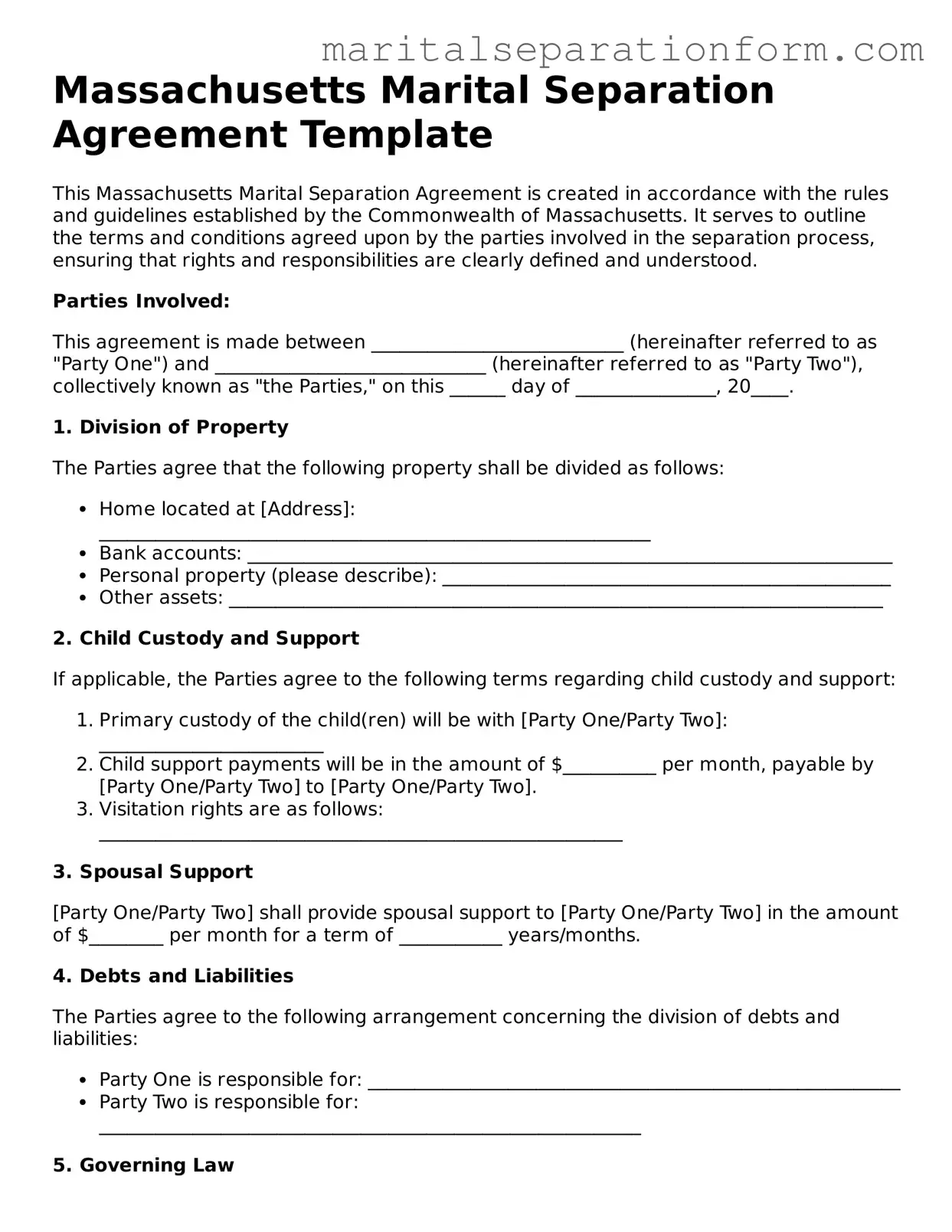What is a Marital Separation Agreement in Massachusetts?
A Marital Separation Agreement in Massachusetts is a legally binding document that outlines how a married couple has agreed to divide their assets, debts, and responsibilities toward children, if applicable, upon separation. It covers arrangements such as alimony, child support, and custody, ensuring that both parties have a clear understanding of their rights and obligations after separation.
Do I need a lawyer to create a Marital Separation Agreement in Massachusetts?
While it's not required to have a lawyer to create a Marital Separation Agreement, it's highly recommended. Legal guidance can help ensure that the agreement is fair, comprehensive, and adheres to Massachusetts laws. A lawyer can also foresee potential problems and work to prevent them, protecting both parties' interests.
How can I file a Marital Separation Agreement in Massachusetts?
To file a Marital Separation Agreement in Massachusetts, you must first draft the agreement, ensuring it includes all necessary provisions and adheres to state laws. Both parties must sign the agreement, ideally in the presence of a notary. After signing, the document should be filed with the appropriate county court where either party resides. The agreement then becomes part of the public record and is enforceable by law.
Is a Marital Separation Agreement the same as a divorce in Massachusetts?
No, a Marital Separation Agreement is not the same as a divorce. This agreement is a legally binding document that stipulates the terms of a separation for a married couple who is not yet ready or deciding not to proceed with a divorce. A divorce, on the other hand, legally ends a marriage. However, the terms of a Marital Separation Agreement can often be used as a foundation for the final divorce decree.
Can a Marital Separation Agreement be modified in Massachusetts?
Yes, a Marital Separation Agreement can be modified in Massachusetts, but this typically requires the consent of both parties. If both parties agree to the changes, they can amend the agreement by drafting a new document that outlines the modifications. This document should then be signed, notarized, and filed with the court. If one party does not agree, the other must file a motion with the court and a judge will decide if the changes are warranted.
What happens if one party violates the Marital Separation Agreement in Massachusetts?
If one party violates the Marital Separation Agreement, the other party has the right to file a complaint with the court. The court may then order the violating party to comply with the agreement's terms. Failure to abide by the court’s order can result in legal penalties, such as fines or, in some cases, jail time.
Are there any circumstances under which a Marital Separation Agreement would not be enforceable in Massachusetts?
Yes, there are circumstances under which a Marital Separation Agreement might not be enforceable in Massachusetts. If the agreement was entered into under duress, fraud, or undue influence, it might be considered invalid. Additionally, if the agreement is deemed unfair or unconscionable at the time of execution, or if it fails to meet legal requirements or provide for the welfare of children involved, a court may refuse to enforce it.

